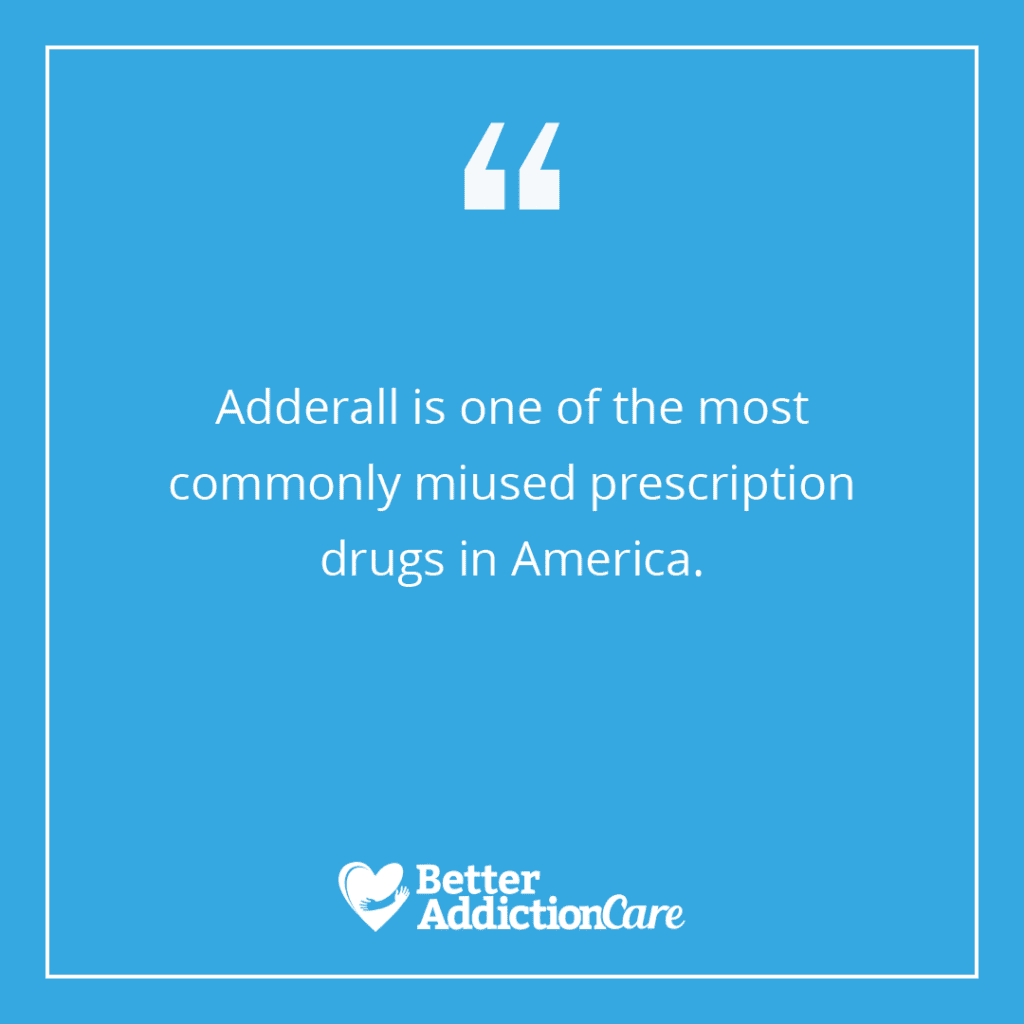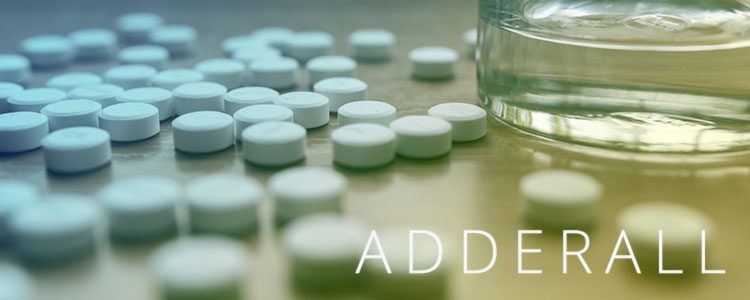Adderall Withdrawal
Adderall (dextroamphetamine and amphetamine) is a prescription stimulant drug prescribed to manage the symptoms of attention-deficit/hyperactivity disorder (ADHD) and narcolepsy. While it can be therapeutic when taken for legitimate medical reasons, many people misuse Adderall to get high, enhance other substances, or improve athletic or academic performance.

When you take Adderall for an extended period of time—either medically or illegally—you may develop a physiological dependence on this stimulant. That means your body has adapted to the presence of the drug and can no longer function optimally without it. If you suddenly stop taking this prescription stimulant, you’ll experience Adderall withdrawal symptoms, which can be unpleasant and distressing.
Adderall Withdrawal Symptoms
If you are taking Adderall for ADHD or narcolepsy, you may develop dependence over time. This is normal and doesn’t mean that you are addicted to Adderall. It simply means that if you want to stop taking your medication, then you’ll want to talk to your doctor about gradually tapering your dose down to avoid withdrawal symptoms.
Conversely, if you misuse Adderall by taking it without a prescription, crushing and snorting it, injecting it, or mixing it with other substances, you are more likely to develop a more rapid and severe dependence. And quitting may lead to distressing Adderall withdrawal symptoms, including:
- Adderall cravings
- Insomnia or hypersomnia
- Vivid, unpleasant dreams
- Severe fatigue
- Increased appetite
- Psychomotor agitation (repetitive, purposeless motions) or retardation (slowed thinking and movements)
- Slow heart rate
- Anxiety and irritability
- Anhedonia (inability to feel pleasure)
- Depression

Adderall Withdrawal Timeline
Adderall withdrawal symptoms typically emerge within a few hours to a couple of days after your last dose.2 Everyone’s timeline is going to vary but research indicates that Adderall may follow this timeline:
- Adderall withdrawal symptoms appear within 12 after last dose
- Symptoms peak in intensity within 3-7 days
- Most Adderall withdrawal symptoms dissipate within one week, although some people have reported symptoms for up to 3 weeks
Your specific withdrawal timeline will depend on what Adderall formulation you are taking and how you typically use it. If you are taking an extended-release version of Adderall, its effects are long-acting, and your Adderall withdrawal symptoms may be delayed compared to a short-acting version. Additionally, if you crush and snort a tablet or open a capsule and snort it, the effects will be short-acting, since the stimulant rapidly reaches your brain through absorption in the nasal passages. Injecting Adderall is even faster and produces a near-immediate high. With both snorting and injecting, you can expect withdrawal symptoms to emerge sooner than taking a pill, especially an extended-release formulation.
Other factors that affect your Adderall withdrawal timeline include:
- Your physiology
- Your weight
- Your Adderall dose
- Whether you use other substances
- Whether you have a co-occurring medical condition
Post-Acute Withdrawal Symptoms
Acute Adderall withdrawal symptoms tend to resolve within one to two weeks, but some symptoms may linger for weeks, months, or even years after you quit using Adderall. These are called post-acute or protracted withdrawal symptoms, and they can be very unpleasant as well as unpredictable. Some people find that they disappear for a significant amount of time before reappearing in times of stress or even without a known trigger.
Adderall post-acute withdrawal symptoms may include:
- Anhedonia
- Depression
- Suicidal thoughts or behaviors
- Loss of physical or mental energy
- Lack of interest in enjoyable activities
If you are experiencing post-acute withdrawal symptoms associated with Adderall or other drug use, make sure you reach out for extra support. Attend additional Narcotics Anonymous (NA) meetings, call your sponsor, schedule extra therapy sessions, or attend any other support groups you find helpful.
Is Adderall Withdrawal Dangerous?
Unlike withdrawal associated with substances like opioids, benzodiazepines, and alcohol, Adderall withdrawal symptoms are not potentially fatal, although they can cause severe psychological distress. The most dangerous thing associated with Adderall withdrawal is the risk of depression and suicide, especially in people with co-occurring mental health disorders. If you are going through Adderall withdrawal and are experiencing suicidal thoughts, call 911 immediately and get professional help. A hospital can provide you with 24/7 medical and psychological care to keep you safe during Adderall withdrawal.
Adderall Withdrawal Treatment at a Detox Program
If you are addicted to Adderall and want to quit, the safest option for withdrawal management is an inpatient Adderall detox program, either at a hospital or at a free-standing detox clinic. Either of these options provides you with around-the-clock medical care, oversight, and supervision. The staff is there to help prevent or address any medical emergencies that may arise during Adderall withdrawal.
The benefits of choosing a detox program include:
- 24/7 medical care
- Medicines to treat various Adderall withdrawal symptoms
- Psychological and emotional support
- Supportive care, such as IV fluids
- Substance abuse and mental health assessment
- Referral to an Adderall addiction treatment program once you’ve completed detox
If you have a mild Adderall addiction or you are taking Adderall for a medical reason, you can receive detox services on an outpatient basis. That means you attend doctor’s appointments during the day and then return home in the evening. Generally, outpatient detox is less disruptive to your daily routine and allows you to continue working or fulfilling obligations at home while you go through Adderall withdrawal.
Detox Medications
Currently, the Food and Drug Administration (FDA) has not approved any medications for the management of Adderall withdrawal or withdrawal from any stimulants for that matter. However, depending on where you are detoxing, your medical team may use various medications to treat symptoms as they arise. They will also provide you with supportive medical care, such as intravenous fluids and nutrients, which will help you feel better and achieve stability.






